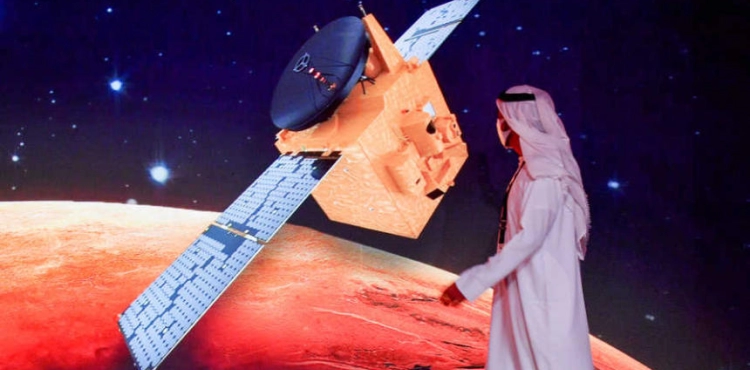Sara Al-Amiri, Minister of State for Advanced Technology and Chair of the Board of Directors of the Emirates Space Agency, said that the success of the Hope Probe to reach Mars, yesterday evening, Tuesday, is the beginning of a series of unprecedented scientific missions that will present an image Integrated into the Martian atmosphere for the first time in human history, and puts its data at the service of the global scientific community.
She added during a press conference, this evening, Wednesday, "The arrival of the Al-Amal probe to the orbit of the capture was the ideal scenario that the probe team aspired to over years of planning, design, innovation and testing and provided a new methodology for entering space missions orbit of Mars."
She stated that the next stages of the Hope Probe mission will provide the global scientific community with comprehensive data on the atmosphere of the red planet and the causes of its climate change.
She drew attention to the importance of the thermal system developed by Al-Amal probe engineers to adapt to the very changing thermal environments throughout its journey in space, in addition to the development of advanced scientific devices on board the probe, which all constituted new innovations.
Al-Amiri said that new questions will be added that the Al-Amal mission can answer, depending on the technical condition of the probe and its equipment in that period of time.
Engineer Imran Sharaf, Director of the Emirates Mars Exploration Project, "The Hope Probe," said, "We confirm that the Hope probe is in complete health. It has performed its tasks perfectly to enter the capture orbit around Mars."
He added: "The ground station at the Mohammed bin Rashid Space Center in Dubai follows the movement of the probe first-hand to continue its next tasks, as daily contact with the ground station has been scheduled, which enables the work team to carry out the operations of downloading the chain of command and data of various operations in an orderly manner."
The Emirati Al-Amal probe that successfully reached Mars yesterday evening, Tuesday, set off from Japan last July, and its journey to Mars took seven months, during which it covered 493 million kilometers, with an average speed of 121 thousand kilometers per hour.












